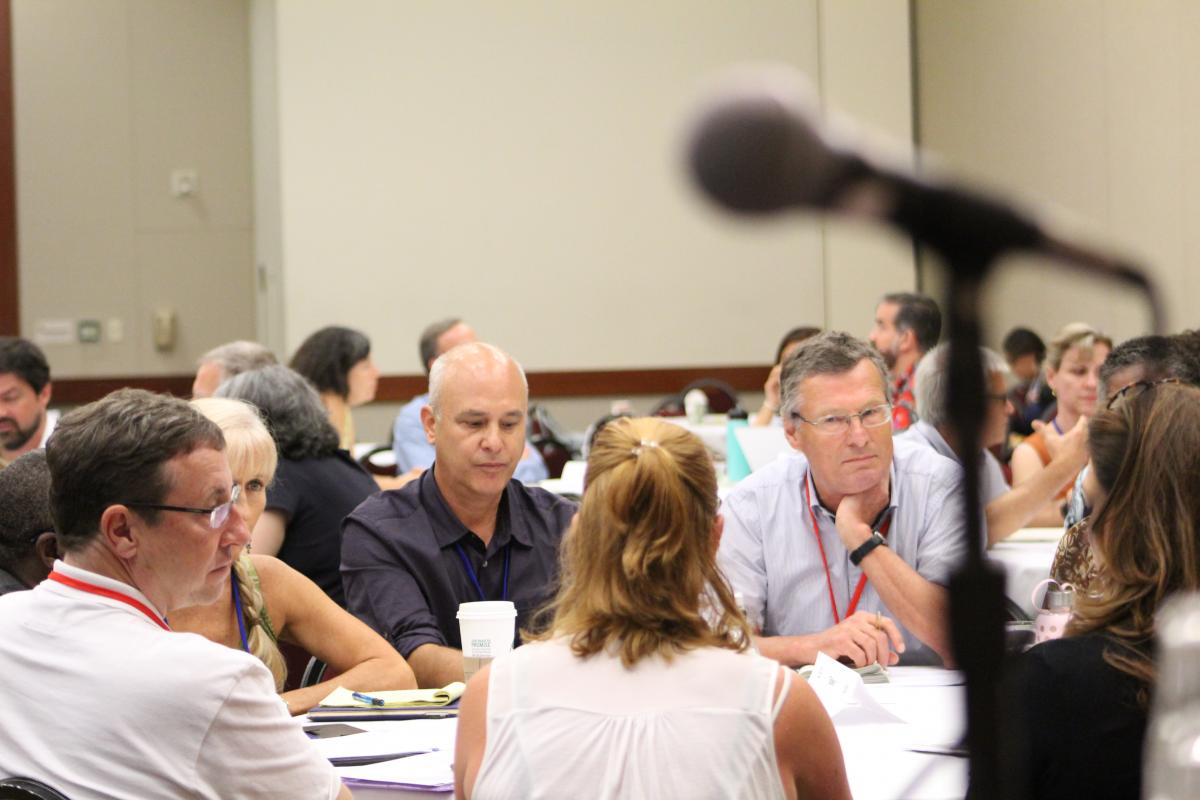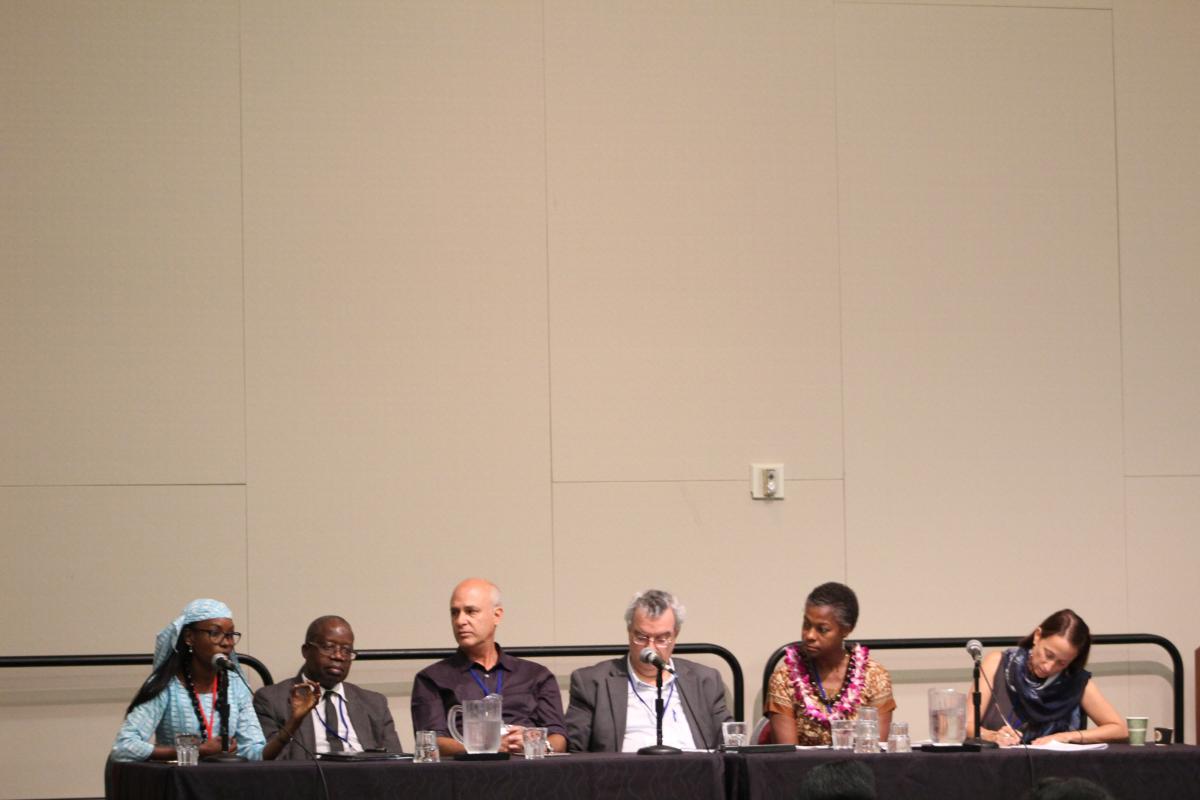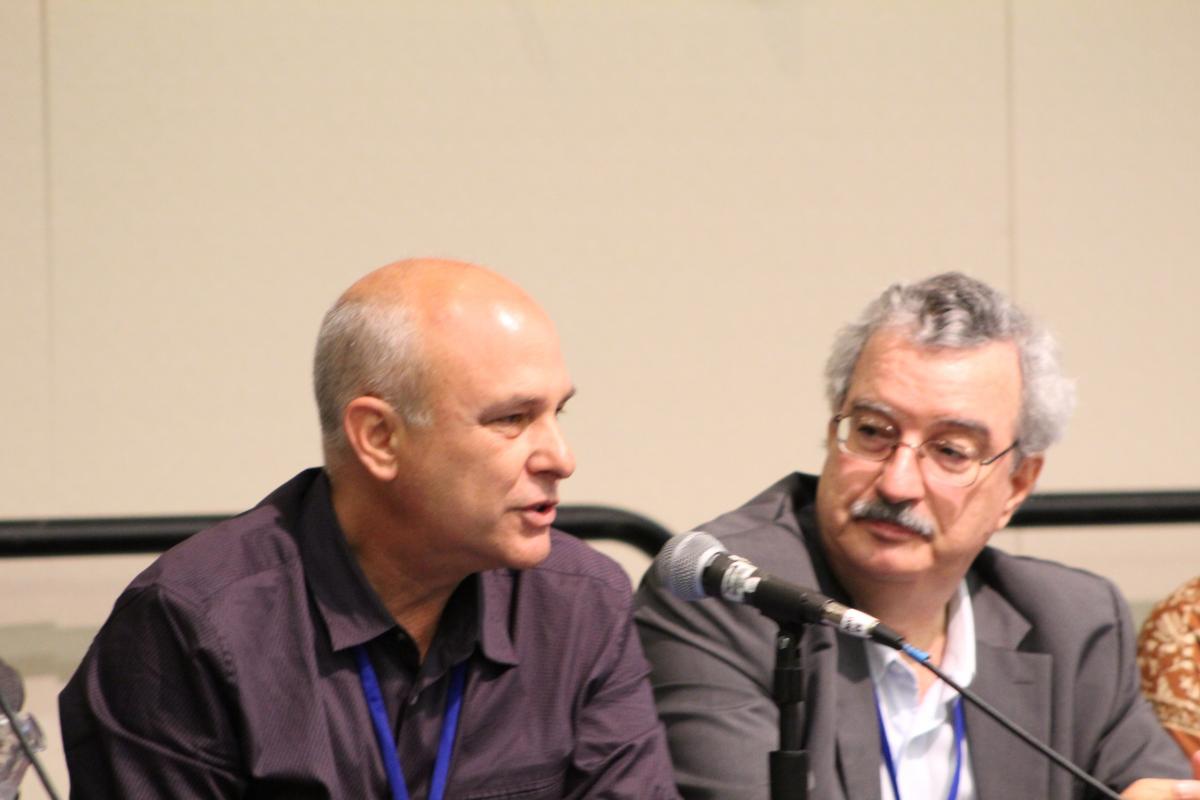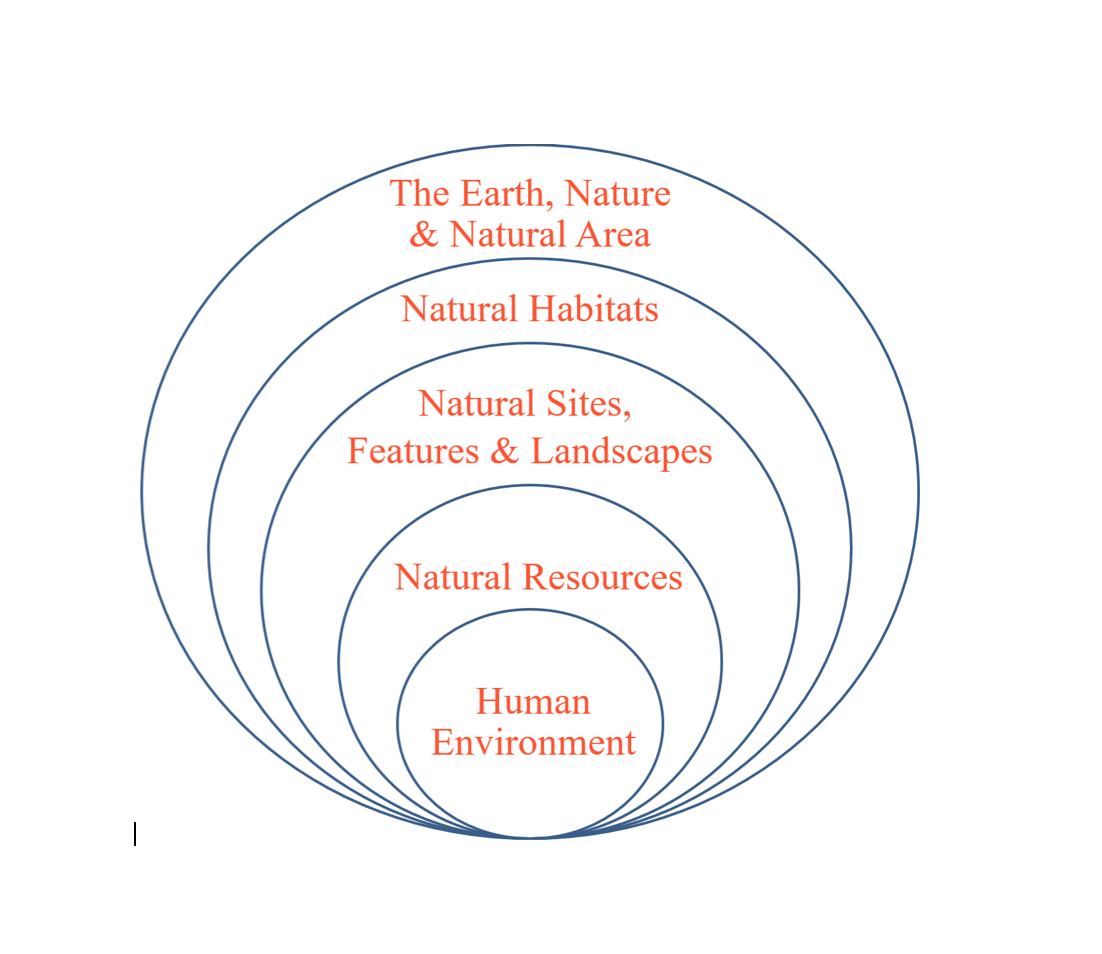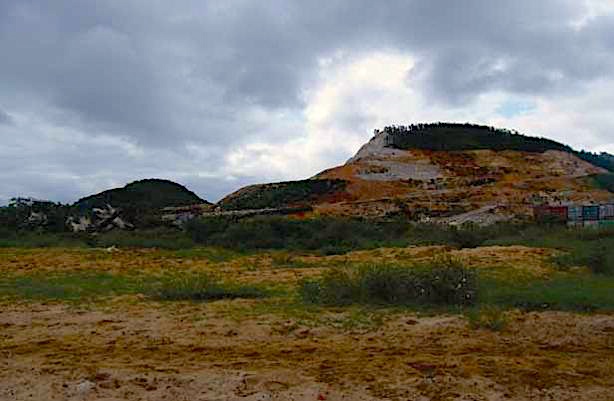Leaders look to the future of restoration and the Bonn Challenge at IUCN World Conservation Congress
Forest landscape restoration took the spotlight at a two-part high-level workshop at IUCN Congress in Hawai‘i, showcasing the experiences and commitment of Bonn Challenge pledgers and partners. Allegra Wrocklage from the University of Michigan reports on the second workshop, 4 September 2016.
The second Bonn Challenge dialogue at IUCN Congress focused on how the Bonn Challenge engages many stakeholders in its implementation and how restoration provides economic benefits, community engagement and food security to people around the world. Through engaging a range of representatives from NGOs, governments, the private sector and community activists, this dialogue sought to explore these benefits while discussing how to most effectively leverage funding and community knowledge to further the initiative’s effectiveness.
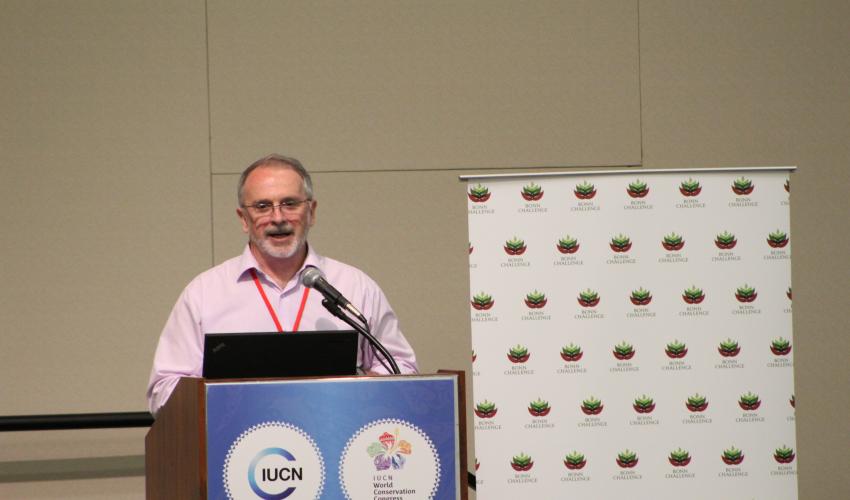 Photo: IUCN Forests
Photo: IUCN Forests
As emcee, William Jackson (Director of Intellegama and former IUCN Deputy Director General) kicked off the day’s workshop with a reminder that forest landscape restoration (FLR) can provide many benefits by engaging a diversity of actors, and that “governments, NGOs, and corporations all have roles to play.” With over 110 million hectares committed by countries thus far to the Bonn Challenge, Jackson looked forward to continuing the improvement of ecosystem services and community well-being through restoration and reforestation.
Bianca Jagger (IUCN Bonn Challenge Ambassador and Founder, President and Chief Executive of the Bianca Jagger Human Rights Foundation) delivered the first keynote, emphasising that at the heart of the Bonn Challenge is supporting people and communities. “We have a unique opportunity to restore forest landscapes for present and future generations, and we have the means [to do so],” she said.
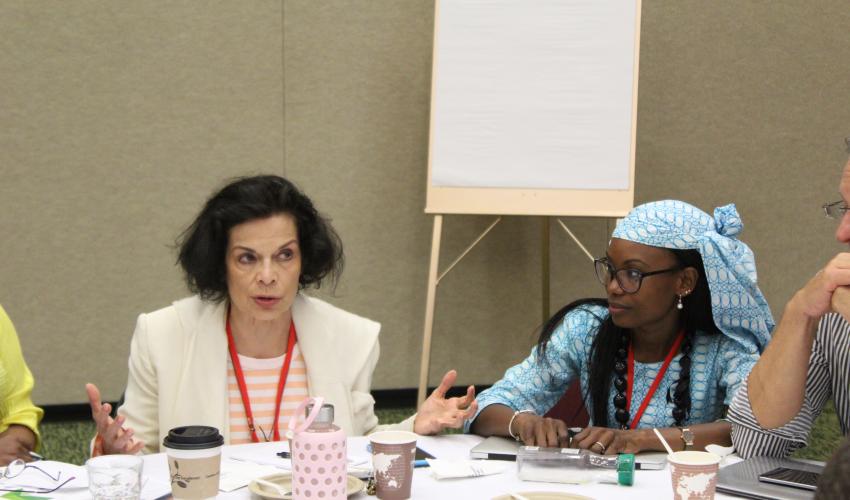 Photo: IUCN Forests
Photo: IUCN Forests
Achim Steiner (Director, Oxford Martin School, and Former Executive Director, UNEP) emphasised the social inclusiveness of the Bonn Challenge. “Every human can plant a tree,” he said, and “trees are constantly at work for us and our communities.” These introductions set the stage for panel discussions that focused on how the Bonn Challenge serves communities and brings together new partners in the pursuit of reforestation. Céline Cousteau (Director of CauseCentric Productions) moderated the panel discussion.
Leslie Weldon (Deputy Chief, USDA Forest Service) discussed how engaging urban communities in the restoration agenda creates an opportunity to restore more forests, while also involving people who do not generally feel connected to the natural landscapes near them. “Reforestation builds communities around a cause,” said Weldon, describing how the US Forest Service engagement with under-resourced urban communities through the Bonn Challenge has accelerated citizen understanding of conservation as a whole.
Braulio Ferreira de Souza Dias (Executive Secretary of the Convention on Biological Diversity) described how the challenges of FLR spurred cooperation across several Brazilian government agencies, who recognised the diverse socioeconomic opportunities provided by “putting degraded land to good use.” IUCN Congress, he added, will build momentum for countries to announce their new pledges to the challenge.
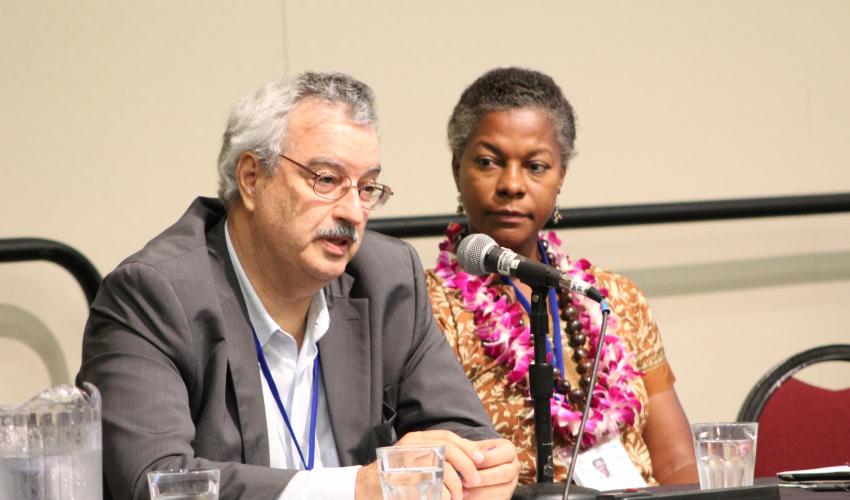 Photo: IUCN Forests
Photo: IUCN Forests
Bruno Mariani (Founder, Symbiosis Investimentos) offered a private sector viewpoint for how restoration also provides a strong business case for investors. In creating successful FLR models, Symbiosis Investimentos’ goal was to create a large-scale business model that would still be viable for the small, private landowner. The next step to attract investors is to continue to scale-up the model.
Clement Chilima (Director of Forestry, Ministry of Natural Resources, Energy and Mining, Malawi) drew attention to the reality of food insecurity that populations in poor nations face – this year 40% of Malawians will need assistance from the government for food. Chilima pointed out that while in Malawi one of the key drivers of deforestation is agricultural production, FLR also presents an opportunity to support communities through enhancing the food security that forests provide. Malawi recently committed to restore 4.5 million hectares of forest through the Bonn Challenge.
Hindou Oumarou Ibrahim (Coordinator, Association for Indigenous Women and Peoples of Chad) gave an impassioned call for incorporating the knowledge and needs of indigenous peoples into where and to what extent FLR is implemented. Ibrahim emphasised the importance of keeping in mind the future of the trees planted through the Bonn Challenge, given the long-term impact of reforestation on indigenous communities and the fact that the burden of caring for these renewed forests falls primarily on indigenous communities. “Sustainable investments come from communicating with communities,” said Ibrahim, further calling for the consultation of indigenous knowledge in restoration initiatives, to ensure the greatest benefit for indigenous communities. Finally, Ibrahim gave a reminder of the importance of including human and indigenous rights in programmes like the Bonn Challenge, as making restoration an economic opportunity for investors can also cause unintentional consequences for indigenous peoples’ access to their lands.
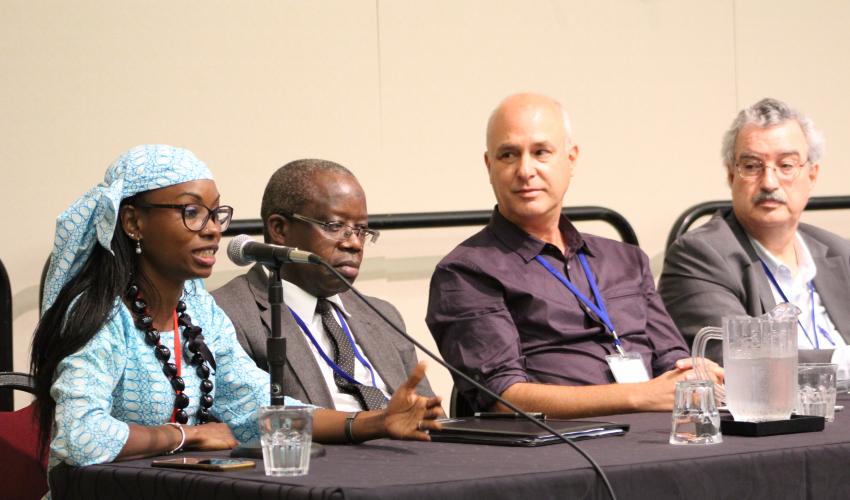 Photo: IUCN Forests
Photo: IUCN Forests
Following the panel discussion, workshop attendees engaged in small discussion groups with topics covering the international agenda, food security, investment and financing, gender-responsiveness, in-country action, and stakeholder engagement – all in relation to FLR activities. Building on the discussion started by the panellists, attendees furthered the conversation by brainstorming recommendations for enhancing the feasibility of restoration.
Download the recommendations document now.
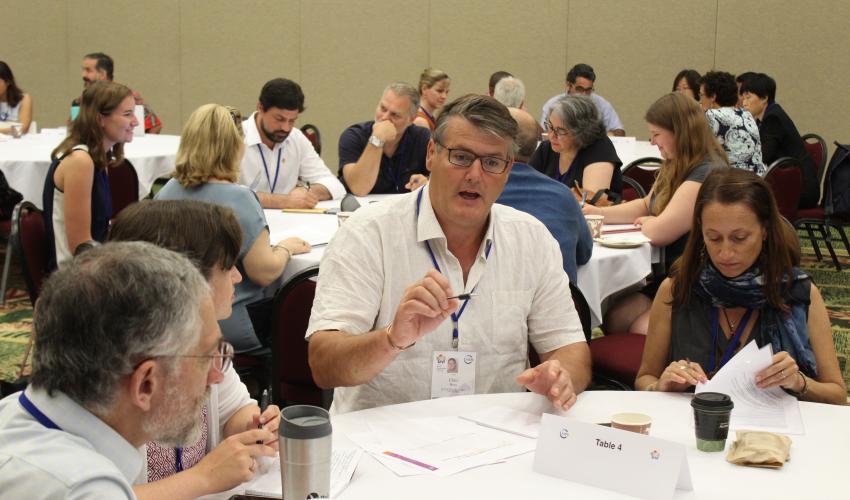 Photo: IUCN Forests
Photo: IUCN Forests
The two-part workshop successfully stimulated dialogues on the Bonn Challenge from wide-ranging perspectives across the initiative. The collective discussions energised participants and will ultimately contribute to achieving the goals of the Bonn Challenge.
